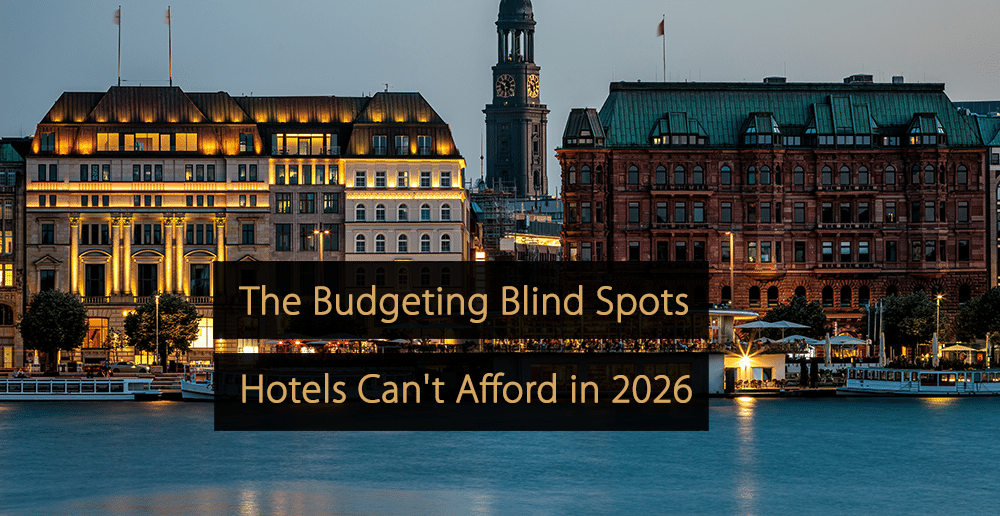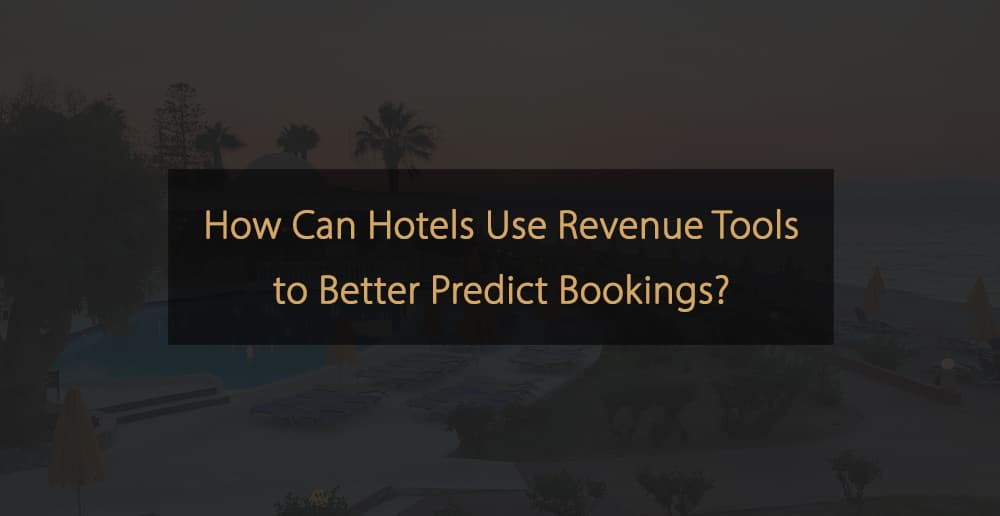Frage an unser Revenue Management Expertengremium:
Führt die Standardisierung von Zimmerkategorien zu einem Anstieg der Buchungen, schwächt aber die Individualität des Hotels oder schränkt sie die Möglichkeiten eines Hotels ein, sich abzuheben und profitabel zu bleiben? (Frage von Nikolas Hall)
Branchenexpertengremium
Unser Branchenexpertengremium besteht aus Fachleuten der Hotel- und Reisebranche. Sie verfügen über umfassendes und detailliertes Wissen, Erfahrung in der Praxis oder im Management und denken zukunftsorientiert. Sie beantworten Fragen zum Stand der Branche. Sie teilen ihre Erkenntnisse zu Themen wie Revenue Management, Marketing, Operations, Technologie und diskutieren die neuesten Trends.
Unser Expertengremium für Revenue Management
- Massimiliano Terzulli – Revenue Management Consultant, Franco Grasso Revenue Team
- Tamie Matthews – Umsatz-, Vertriebs- und Marketingberaterin, RevenYou
- Pablo Torres – Hotelberater
- Mariska van Heemskerk – Inhaberin, Revenue Management Works
- Niko Krauseneck – Gründer, RevenueRebel
- Heiko Rieder – Senior Vice President Commercial & Distribution, Step Partners Europe
- Chaya Kowal – Director of Revenue Management, Potato Head Family
- Dermot Herlihy – Group Revenue Director, Orascoma Hotels Management
- Silvia Cantarella – Revenue Management-Beraterin, Revenue Acrobats
- Stellen Sie unserem Gremium eine Frage
- Treten Sie unserem Expertengremium bei
„Leider helfen die starren Protokolle der OTAs nicht dabei, die Einzigartigkeit von Hotelimmobilien hervorzuheben. Die Namen der Zimmertypen individuell anzupassen, ist immer eine Herausforderung.
Einerseits verstehe ich die Notwendigkeit, Inhalte zu standardisieren und Grauzonen zu vermeiden, um die Konversionsrate zu steigern. Andererseits liegt es jedoch an den Hotels, angesichts der Einschränkungen der OTAs die effektivsten Wege zu finden, sich von der Masse abzuheben. Fotos und Zimmerbeschreibungen können sicherlich eine große Rolle spielen, aber der effektivste Weg, die OTA-Standardisierung zu umgehen, ist die Investition in eine hochwertige Website mit vielen Inhalten und nützlichen Informationen, die alle einzigartigen Merkmale des Hotels präsentiert.“
„Aufgrund meiner zehnjährigen Erfahrung mit RevenYou und der Zusammenarbeit mit verschiedenen Unterkunftsanbietern von Hotels bis hin zu Wohnwagenparks konnte ich immer wieder einen direkten Zusammenhang zwischen vereinfachten, standardisierten Zimmertypnamen und höheren Konversionsraten beobachten.
Ich bin davon überzeugt, dass Zimmernamen den Kunden ein klares und prägnantes Verständnis der Zimmermerkmale vermitteln und gleichzeitig die Alleinstellungsmerkmale (USPs) hervorheben sollten. Wir können uns nicht darauf verlassen, dass Kunden Beschreibungen lesen. Das Alleinstellungsmerkmal muss im Namen enthalten sein.
Im Rahmen unseres Onboarding-Prozesses überprüfen wir standardmäßig die Zimmertypenbezeichnungen einer Unterkunft. Dabei wechseln wir oft von komplexen Bezeichnungen wie „Deluxe Executive Zimmer“ zu einfacheren Bezeichnungen wie „Queen-Zimmer“, „King-Zimmer mit Meerblick“ oder „Apartment mit zwei Schlafzimmern und zwei Bädern“.
Diese Anpassungen werden dann über alle Vertriebskanäle hinweg umgesetzt, um nicht nur Preisgleichheit, sondern auch Gleichheit bei der Terminologie und den angebotenen Annehmlichkeiten zu gewährleisten. Diese einheitliche Botschaft ermöglicht es den Kunden, schnell und sicher fundierte Entscheidungen zu treffen.
Beispielsweise verwendete ein bekanntes Hotel im Geschäftsviertel einer Großstadt, mit dem RevenYou seit 2024 zusammenarbeitet, Zimmernamen basierend auf Quadratmetern (z. B. „Studio 34“ oder „Apartment 56“). Diese Namen waren nicht eindeutig und betonten wichtige Merkmale nicht. Durch die Umbenennung in „Studio Queen“, „Studio Queen mit Balkon“ (der Balkon ist ein herausragendes Alleinstellungsmerkmal) und die entsprechende Preisgestaltung konnte das Hotel eine deutliche Steigerung der Auslastung von 60% auf 95% verzeichnen. Dies verdeutlicht die Bedeutung einer klaren, kundenorientierten Zimmerbenennung für die Umsatzsteigerung.“
Wenn jedes Hotel auf die gleichen generischen Bezeichnungen „Deluxe“, „Superior“ oder „Standard“ reduziert wird, fällt es den Häusern schwerer, sich abzuheben. Insbesondere Boutique- und unabhängige Hotels leben von der Differenzierung (eine historische Suite, ein Themenzimmer oder eine einzigartige Villa am Meer). Nimmt man diese Einzigartigkeit weg, laufen sie Gefahr, nur ein weiteres Angebot in einem Meer von Optionen zu werden.
Dennoch finden einige Hotels Wege, innerhalb des Systems zu arbeiten und gleichzeitig ihre Identität zu bewahren. Nehmen wir Luxusmarken wie Four Seasons oder Aman: Sie nutzen zwar Zimmerkategorien für OTAs, heben aber auf ihren Direktbuchungskanälen einzigartige Merkmale, exklusive Vergünstigungen und Storytelling hervor, um ihre Markenpersönlichkeit zu bewahren.
Standardisierung kann zwar die Konversionsrate steigern, doch ein zu starkes Vertrauen darauf kann die langfristige Rentabilität beeinträchtigen, da ein Hotel dadurch zu einer gewöhnlichen Ware wird. Der Trick? Nutzen Sie sie für OTAs, aber bewahren Sie den Zauber auf Ihren eigenen Plattformen.“
„Meiner Meinung nach geschieht dies bereits, wenn große Partner für Sie entscheiden, welche Namensgebung möglich ist, wenn Sie Ihre Zimmer auf ihrer Website verkaufen.
Wir stellen jedoch häufig fest, dass die Auswahl immer noch so groß ist und die Zimmerkategorien nie genau das sind, was sie in den Augen des Hoteliers sein sollten. Letztendlich kommt es darauf an, dass die Beschreibungen Sinn ergeben und die Unterschiede zwischen den einzelnen Zimmerkategorien klar erkennbar sind. Aber ist es wirklich wichtig, ob wir es Economy oder kleines Doppelzimmer nennen? Oder Classic vs. Superior vs. Deluxe vs. Executive? Bei Markenhotels kann es natürlich hilfreich sein, die Unterschiede zwischen den Untermarken in der Definition der Kategorien zu erkennen. Aber bei Boutique-Hotels / kleineren Ketten / eigenständigen Hotels / oder sogar größeren Ketten, für die es kein Einheitsmodell gibt? Stellen Sie sicher, dass die Beschreibung Sinn ergibt und die Gäste den Wert eines Upgrades erkennen.“
„Das ist wirklich eine spannende Frage. Meiner Meinung nach hilft die Standardisierung der Zimmerkategorien den Gästen, sich besser zu informieren, was sie erwartet. Das steigert das Vertrauen und letztlich die Zufriedenheit. Ein klarer, vorhersehbarer Buchungsprozess kann die Konversionsrate deutlich steigern.
Aber macht es ein Hotel einzigartig? Nicht, wenn die Grundlagen des Markenmarketings stimmen. Ein Hotel, das seine Zielgruppe kennt, klare Werte vertritt und diese in Design, Service und Kommunikation umsetzt, verliert seine Einzigartigkeit nicht, nur weil OTAs Standardzimmerbezeichnungen verwenden. Das wahre Unterscheidungsmerkmal ist nicht der Name des Zimmers, sondern das Erlebnis, das die Gäste vor Ort und während der gesamten Reise erleben.“
Die Lösung zur Steigerung der Konversionsraten ohne Beeinträchtigung der Markenidentität liegt in der attributbasierten Preisgestaltung. Es gibt Buchungsansätze, die zahlreiche Zimmerkategorien im Property Management System zu wenigen in der Buchungsmaschine zusammenfassen. Während des Buchungsvorgangs können Kunden dann auf ihre persönlichen Vorlieben zugeschnittene Attribute in den Warenkorb legen. Zu diesen Attributen können beispielsweise eine schöne Zimmeraussicht oder ein extragroßes Nebenzimmer gehören.
Das Buchungssystem ordnet die Reservierung basierend auf der ausgewählten Zimmerkategorie und den Attributen wieder der entsprechenden Zimmerkategorie im PMS zu. Dadurch wird sichergestellt, dass die wesentlichen, detaillierten Zimmerkategorien, die für die Zimmerzuweisung im Front Office erforderlich sind, im Property Management System erhalten bleiben.
Die Standardisierung von Zimmerkategorien ist sinnvoll, um den Buchungsprozess zu vereinfachen und Reisenden einen einfachen Vergleich der Optionen zu ermöglichen. Ich denke jedoch, dass die Auswirkungen stark von der Art der Unterkunft und dem Geschäftsmodell abhängen. Hotels, die sich auf das Erlebnis statt auf den bloßen Verkauf eines Produkts konzentrieren, kann dieser Ansatz ihre Einzigartigkeit verlieren und es schwieriger machen, Premiumpreise zu rechtfertigen, insbesondere bei Spezialzimmern wie Suiten mit Meerblick oder exklusiven Villen.
Für Hotels, die ihre Einstiegskategorien schnell füllen möchten, kann eine Standardisierung hingegen von Vorteil sein. Der Schlüssel liegt darin, ein Gleichgewicht zu finden: Sichtbarkeit auf OTAs sicherzustellen und gleichzeitig eine unverwechselbare Identität zu bewahren, die Direktbuchungen und langfristigen Markenwert fördert.“
Boutique- und unabhängige Hotels nutzen oft benannte Zimmerkategorien, um ihre Geschichte zu erzählen und größere Marketingelemente damit zu verknüpfen. Auf den OTAs können diese Zimmer ihre Individualität und Lage verlieren, wenn sie gängigen Namenskonventionen wie „Deluxe Double“ oder „Standard King“ folgen. Dies verwässert letztendlich ihre Einzigartigkeit und das Ziel, eine Geschichte zu erzählen.
Ich bin jedoch davon überzeugt, dass es einen Kompromiss gibt, indem man einen zweistufigen Ansatz implementiert: Verwenden Sie einfachere, besser erkennbare Bezeichnungen auf OTAs, um die Auffindbarkeit zu verbessern, und behalten Sie gleichzeitig auf den direkten Kanälen ein unverwechselbares Branding und Storytelling bei („Deluxe King mit Stadtblick“).
Wir beobachten, dass Zimmerkategorien aufgrund des Aufstiegs von Marken wie Hyatts Unbound und Marriotts Autograph Collection, die die Geschichten unabhängiger Hotels mit denen von Ketten verbinden, immer mehr allgemeinen Markenfiltern unterliegen. Solange Hotels ein gewisses Maß an Kontrolle über die Vermarktung und Präsentation ihrer Zimmer über alle Kanäle hinweg behalten, müssen die Konversionsgewinne nicht auf Kosten der langfristigen Rentabilität gehen.“
„Da ich hauptsächlich im Luxussektor arbeite, bin ich davon überzeugt, dass die Standardisierung von Kategorien der Einzigartigkeit der Immobilie und der Rentabilität zuwiderläuft. Ich glaube jedoch auch, dass sie im Direktvertrieb gegenüber OTAs als Vorteil genutzt werden kann.
Es gibt sehr spezielle Zimmertypen, die eine Beschreibung oder besondere Merkmale erfordern, die nicht immer in den auf OTAs verfügbaren Optionen enthalten sind, was aus der Sicht des Vermittlers zu Nachteilen für die Unterkunft führt.
Da die Gäste jedoch verschiedene Verkaufsstellen konsultieren können, bietet sich eine Chance, wenn der Kunde auf unserer Website landet. Wir können einen Unterschied machen, indem wir die Zimmerkategorien auf interessante, einzigartige und ansprechende Weise präsentieren, um nicht nur den Direktverkauf, sondern auch das Upselling in höhere Kategorien zu fördern.“
Stellen Sie eine Frage und treten Sie unserem Expertengremium bei
Möchten Sie eine Frage von unserem Industry Expert Panel beantwortet bekommen? Oder möchten Sie unserer Experten-Community beitreten und Ihre Erfahrungen, Erkenntnisse und Ihr Wissen mit anderen Branchenexperten teilen? Über die Schaltflächen unten können Sie eine Frage stellen oder eine Anfrage stellen, um Teil unseres Expertengremiums zu werden.
Weitere Tipps zum Wachstum Ihres Unternehmens
Revfine.com ist die führende Wissensplattform für die Hotel- und Reisebranche. Fachleute nutzen unsere Erkenntnisse, Strategien und umsetzbaren Tipps, um sich inspirieren zu lassen, den Umsatz zu optimieren, Prozesse zu erneuern und das Kundenerlebnis zu verbessern.Entdecken Sie Expertenratschläge zu Management, Marketing, revenue management, Betrieb, Software und Technologie in unserem speziellen Hotel, Gastfreundschaft, und Reise Tourismus Kategorien.
















Leave A Comment